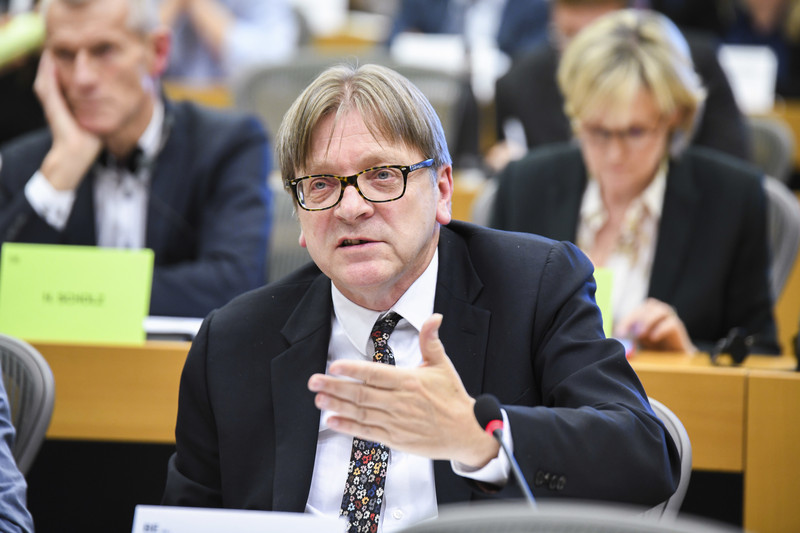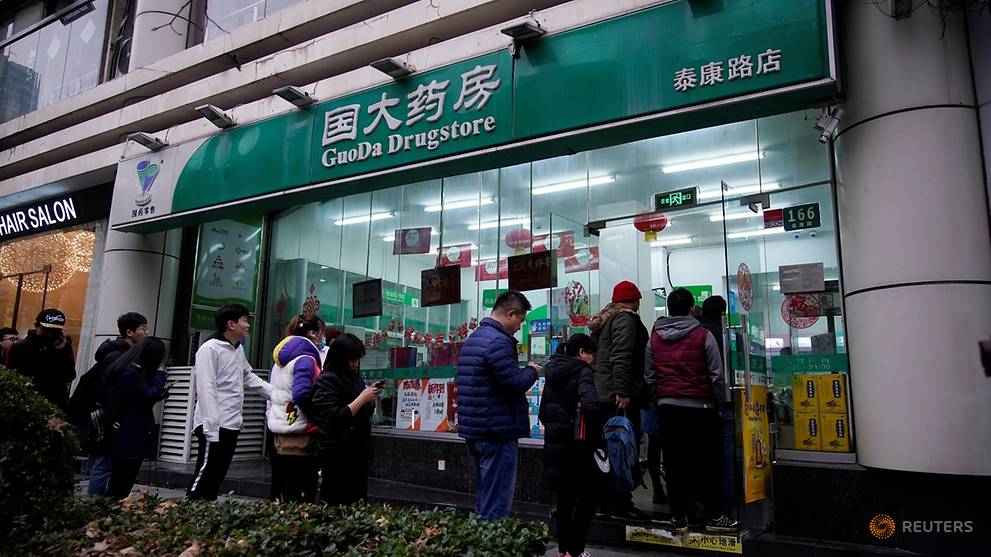EurActiv (24 January 2020)
German Chancellor Angela Merkel defended her tough stand and the austere fiscal policy she pursued in response to the financial crisis that shook up the eurozone in 2008 as she addressed the World Economic Forum on Thursday (23 January).
“I know that people were very angry with me, saying I was a bad person for actually imposing these conditions on Greece, on Portugal… But now that you see that the reforms are taking place, they are in much better shape,” Merkel told a packed auditorium in her 12th annual appearance before the global economic elite in Davos.
“This is because of the stringency and perhaps because the reform demands that we made,” the Chancellor argued, “I believe we have learnt our lessons from the big euro crisis”.
Germany played a fundamental role in the management of the financial crisis that almost leads Greece out of the Eurozone in the summer of 2015. Last year, the country put an end to its third reform programme.
Greek finances are now under severe scrutiny in the context of the so-called “enhanced surveillance report”, which looks at the progress on the reforms agreed with the Eurogroup. The latest report showed the country’s economy is indeed in much better shape, although unemployment and poverty remain key concerns.
Greece ends capital controls after 50 months
The Greek government fully lifted the capital controls introduced during the crisis in 2015 on Monday (26 August), in a sign of its growing economic confidence following the end of the bailout programme last year.
Trade to fight recession
The global economy has experienced a downturn as a result of the increasing trade tensions and geopolitical instability. Asked if Europe is ready to face a new crisis, Merkel said she “would deal rather more with the question of how we can avert a recession.”
And for the Chancellor, the answer is trade. Merkel praised the conclusion of the first phase of a trade agreement with China and said the EU is on its way to reach a deal with the US.
“I have always been strongly in favour of TTIP and I will be very strongly in favour of trade agreements with the US,” Merkel said, referring to the Transatlantic Trade and Investment Partnership, a deal that was shelved in late 2016.
Her comments came just hours after US President Donald Trump threatened to impose tariffs on European cars – a particularly worrying issue for Germany- if there was no progress in trade talks.
On the specific initiatives at EU level, the Chancellor did not get into many details but pointed out the need to strengthen the banking union and push forward the capital markets union.
As the International Monetary Fund, the European Central Bank and the European Commission have repeatedly called on member states with fiscal capacity to further invest – eyeing Germany and the Netherlands in particular – the Chancellor rushed to defend her government’s performance.
“Let me tell you, we are investing more than we’ve ever had in our past,” Merkel argued, “Germany will not be holding back.”
A united Europe in the world
In an increasingly convulsive world, Merkel argued that the EU needed to speak with a “clearer and stronger voice” if it wants to have a real impact on the global scene.
One of the most successful recent achievements of the bloc’s diplomacy, the Iran Nuclear Deal, is almost dead now as a result of rising tensions between Washington and Tehran. She defended the agreement.
“Let us not discard that, if we don’t have anything better to replace it,” she argued while defending the decision to resort to the dispute settlement mechanism “because we shouldn’t send the message to Iran them violating the agreement doesn’t come without punishment.”
In a message that echoed the speech of her former defence minister and current European Commission president, Ursula Von der Leyen, Merkel called on the EU to focus on being more assertive in preventing crises.
Germany will take over the presidency of the EU Council in July. The Chancellor said that under their leadership, the EU will call for a summit with African partners aimed at listening to their priorities, “to help them develop their ideas and not impose our own.”
She also wants to strengthen the bloc’s position towards China as, she admitted, “the EU does not yet have a consistent policy” in regard to Beijing. “The big ones [member states], they are always meeting with China, doing their business. Now we also want to get together,” she added.
The German presidency will host the first EU27 summit with China and Merkel would like to see a more permanent structure for the two parties to meet regularly.
Brexit – a chance to boost EU’s competitiveness
The departure of the UK from the Union is around the corner with the European Parliament set to vote the withdrawal agreement next week, after it was endorsed on Wednesday by the Parliament’s Institutional Affairs Committee.
“On the 31 of January, the EU will change substantially,” Merkel said and added the bloc “will do everything we can to have good neighbourly relations in a spirit of partnership with the UK.”
Merkel argued that Britain was never “a happy member of the EU” as they were very sceptical “whenever there were great changes towards a more cohesive single market.”
The UK’s departure, Merkel argued, could help to boost the bloc’s competitiveness “because there will be a competitor in our doorstep.”
British lawmakers finally approve historic Brexit deal
Britain’s parliament finally approved Brexit on Thursday (9 January), allowing it to become the first country to leave the European Union by the end of this month, ending years of arguments that toppled two governments and divided a nation.
[Edited by Zoran Radosavljevic]
No comments yet.
- SOUTH KOREA'S PUSH FOR TOURISM IN NORTH POSES TRICKY BALANCING ACT Asia - Pacific 24.01.2020
- RUSSIA, TURKMENISTAN DISCUSS PROSPECTS OF CO-OP Central Asia 24.01.2020
- ARMENIA TAKES ON “THIEVES IN LAW” The Caucasus and Turkish-Armenian Relations 24.01.2020
-
 BREXIT DEAL TO BE SIGNED, AS SIDES POISED FOR TOUGH TALKS
Europe - EU
24.01.2020
BREXIT DEAL TO BE SIGNED, AS SIDES POISED FOR TOUGH TALKS
Europe - EU
24.01.2020
-
 WUHAN VIRUS: NUMBER OF CASES IN CHINA TOPS 800, DEATH TOLL HITS 26
Asia - Pacific
24.01.2020
WUHAN VIRUS: NUMBER OF CASES IN CHINA TOPS 800, DEATH TOLL HITS 26
Asia - Pacific
24.01.2020
-
19.04.2024
Türk-Ermeni İlişkileri Üzerine Ömer Engin Lütem Konferansları 2023 -
11.04.2023
Türk-Ermeni İlişkileri Üzerine Ömer Engin Lütem Konferansları 2022 -
27.03.2023
RADİKAL ERMENİ UNSURLARCA GERÇEKLEŞTİRİLEN MEZALİMLER VE VANDALİZM -
17.03.2023
PATRIOTISM PERVERTED -
23.02.2023
MEN ARE LIKE THAT -
03.02.2023
BAKÜ-TİFLİS-CEYHAN BORU HATTININ YAŞANAN TARİHİ -
16.12.2022
INTERNATIONAL SCHOLARS ON THE EVENTS OF 1915 -
07.12.2022
FAKE PHOTOS AND THE ARMENIAN PROPAGANDA -
07.12.2022
ERMENİ PROPAGANDASI VE SAHTE RESİMLER -
30.03.2022
Türk-Ermeni İlişkileri Üzerine Ömer Engin Lütem Konferansları 2021 -
01.01.2022
A Letter From Japan - Strategically Mum: The Silence of the Armenians -
01.01.2022
Japonya'dan Bir Mektup - Stratejik Suskunluk: Ermenilerin Sessizliği -
11.02.2021
Türk-Ermeni Uyuşmazlığı Üzerine Ömer Engin Lütem Konferansları 2020 -
03.06.2020
Anastas Mikoyan: Confessions of an Armenian Bolshevik -
08.04.2020
Sovyet Sonrası Ukrayna’da Devlet, Toplum ve Siyaset - Değişen Dinamikler, Dönüşen Kimlikler -
18.03.2020
Türk-Ermeni Uyuşmazlığı Üzerine Ömer Engin Lütem Konferansları 2019 -
08.03.2019
Türk-Ermeni Uyuşmazlığı Üzerine Ömer Engin Lütem Konferansları 2018 -
12.06.2018
Ermeni Sorunuyla İlgili İngiliz Belgeleri (1912-1923) - British Documents on Armenian Question (1912-1923) -
02.12.2016
Turkish-Russian Academics: A Historical Study on the Caucasus -
01.07.2016
Gürcistan'daki Müslüman Topluluklar: Azınlık Hakları, Kimlik, Siyaset -
10.03.2016
Armenian Diaspora: Diaspora, State and the Imagination of the Republic of Armenia -
24.01.2016
Ermeni Sorunu Temel Bilgi ve Belgeler (2. Baskı)
-
AVİM Conference Hall 24.01.2023
CONFERENCE TITLED “HUNGARY’S PERSPECTIVES ON THE TURKIC WORLD"









